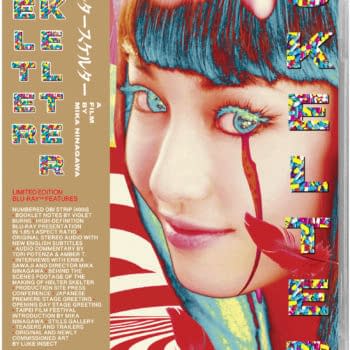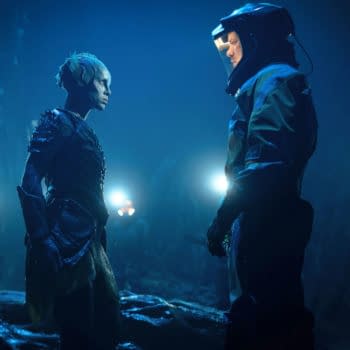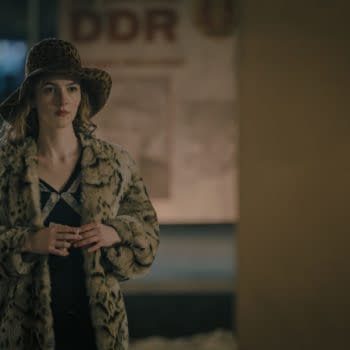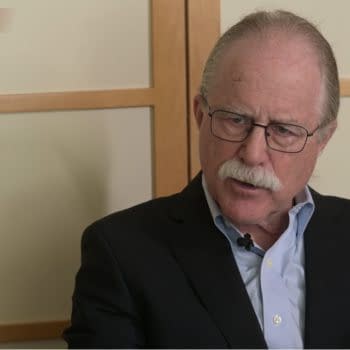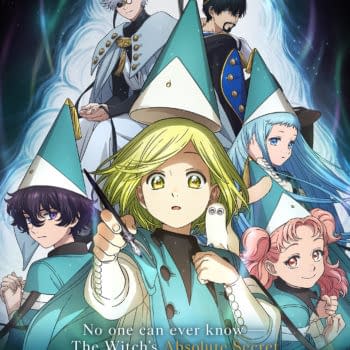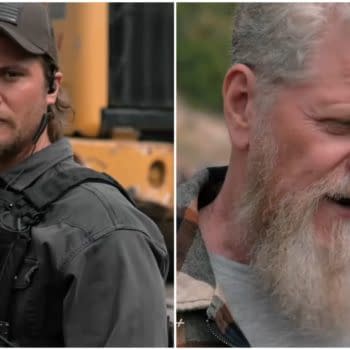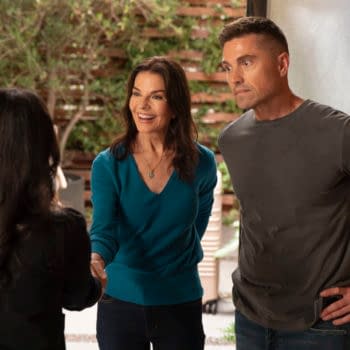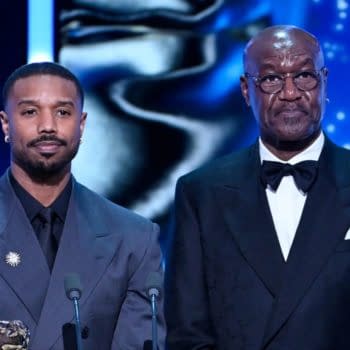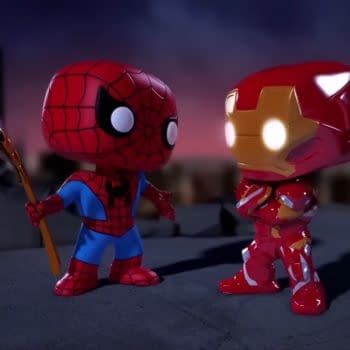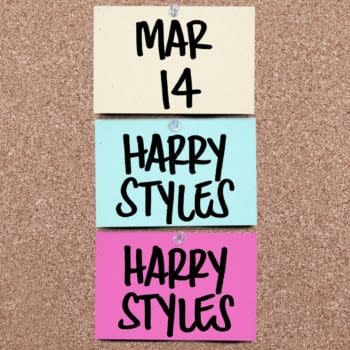Posted in: BBC, TV | Tagged: Audio Drama, bbc, BBC Radio 4, bleeding cool, cable, Deacon, don warrington, edson burton, fantasy, radio drama, streaming, supernatural drama, television, tv, Urban Fantasy
Deacon Creator Edson Burton Discusses His BBC Urban Supernatural Drama
Deacon is a new trilogy of stories on BBC Radio 4 featuring veteran actor Don Warrington as a mysterious drifter who shows up when least expected to save a lost soul. Created and written by Edson Burton, a historian, poet, playwright, and performer, the series features an almost all-black cast and features myths and the supernatural crashing in on characters living in Bristol's inner city in often cataclysmic fashion. Ex-boxers-turned-petty-criminals, teenagers in trouble, illegal immigrants in hiding who become targeted by forces from the netherworld, these are the people Deacon steps in to save.
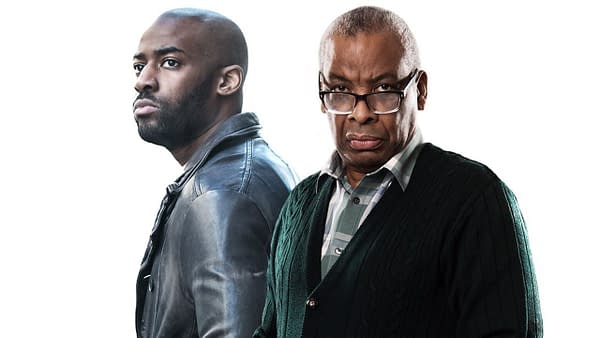
This week, we were lucky to interview Edson Burton to talk about the debut of his new series.
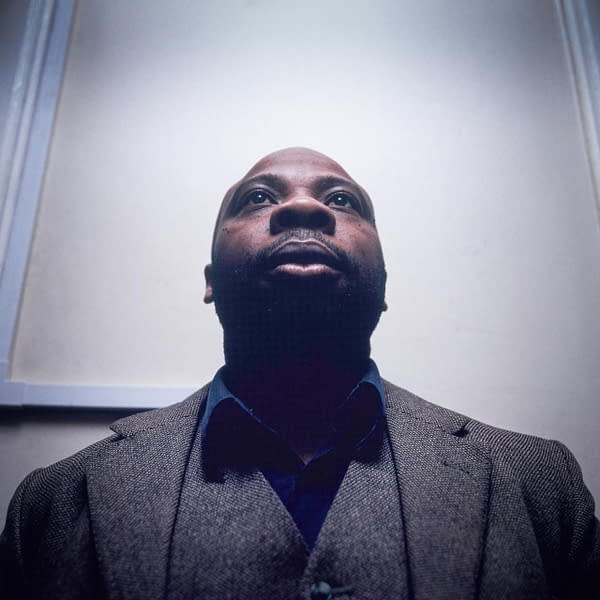
The Deacon Trilogy is a fresh new take on fantasy married to contemporary inner-city life and issues. What inspired you to create the character and the pitch for the series?
As part of my doctoral studies, I researched African continuities in the so-called "New World." I was particularly drawn to West African cosmologies and what they offered my understanding of the complexity of African diasporic histories. Since then I've been hooked. This interest came together in my creative proclivity towards depicting smaller lives, the largely ordinary person who stands at the crossroads of life changing choices. The two interests intersected and gave birth to Deacon. But this wasn't so much a conscious creative force. I was invited by the BBC to join a number of writers in 2016 to come up with ideas for a series. Deacon wasn't my main pitch but crept up on me actually on the last day and after the residency. He took me as much as the commissioner editor by surprise.
How Deacon was Created
Deacon is an iteration of the archetype of the mysterious figure who shows up unexpectedly to save lost souls. It's a character who pops up in genre fiction every now and then – even in DC Comics, there was the Phantom Stranger, which Deacon reminded me a bit of. What inspired you to create him?
No doubt subconsciously I was inspired by watching the Kung Fu series as a kid, and Clint Eastwood's Man with No Name Westerns but they were obvious reference points. In some ways, when I think about it, I guess Deacon is in essence a manifestation of my outsider-ness. It's the blessing and curse of many artists. One is always one step removed even from one own's emotions. My mother is also an unconventional Christian – open to all waifs and strays without judgment and some of her examples live in Deacon that and my Father's (RIP) worldliness. Flawed angels and banal devils are the meat and bones of my life so I am suspicious of simple heroic morality narratives too, so I wanted both Deacon and those he encountered to be fallen types looking to make better choices.
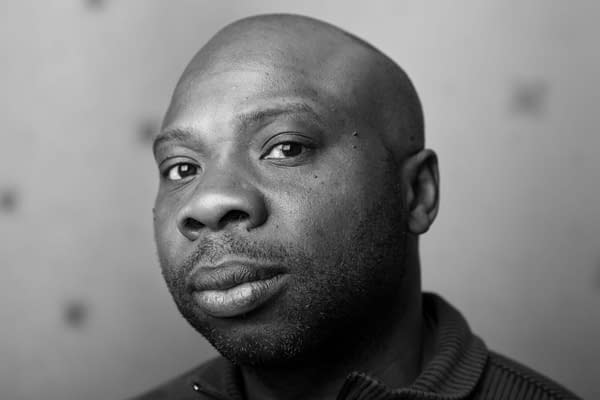
You have a background as a historian, academic, playwright, and performer. Can you talk a bit about how you use genres such as Science Fiction, Fantasy, and Folklore to explore themes of culture, identity and history?
I consumed comics when I was younger, before combining my love of comics with Sci-Fiction in particular Philip K Dick's work. Initially, I was drawn to the hero narratives. As I grew older and began to study, I realized the creative possibilities in Sci-Fi and fantasy to reimagine the future, to warn against the currents of the present. I found myself in particular frustrated by the binary nature of our discussions around race. A critical part of that frustration is what I learned during postgraduate research firstly on my MA and then in my doctoral thesis. Simply that Africa and her Diasporic offspring has undergone a violent schism from a trajectory that could have seen a harmonious African centered exchange of ideas around religion, philosophy, social organization, economics, and technology. There is so much that could have been, could be the basis on which we create our present and future realities. For me, Deacon represents an opportunity to at least give some sense of this under-represented African diasporic spirituality. My other projects go a little further in this regard. The Last Blues Song of a Lost Afronaut imagines a future Black colony that has followed the kind of trajectory I describe above by deliberately suppressing memories of the colonial moment. LBSLA needs a little more love than I've shown it lately but it will happen.
How the BBC Produces Audio Drama
Our readers don't always know how radio plays are put together. Can you tell us how the writing, casting, and production came together?
Radio is similar in some regards as film. The pitch is everything as commissioners have to decide on so many ideas. The role of the producer is then key in working with the writer to ensure that the pitch is clear, intrigues, and has an obvious audience appeal. If successful you are invited to write a more detailed treatment and if that is successful you move on to a paid commission. Unlike film perhaps radio is about being true to the writer's vision. The producer in my case John Norton is a creative being who can help spot clankers and so forth but essentially, they are trying to tell your story.
Our national TV and radio broadcaster the BBC is the main outlet for radio drama and offers a range of slots for writers to pitch towards. The afternoon play slot is the most competitive so I'm pretty chuffed to have had.
Evolution of the First Series
The trilogy follows a precise narrative trajectory: the first story introduces us to Deacon and the inner city setting before revealing his supernatural nature at the climax. The second starts to double-down on the folklore and mythology of Deacon's world when it intrudes on the human world, and the third goes even deeper into the mythical forces in conflict that use humans and Deacon's role in it. Did you plan this from the start or was that a narrative that came about during development?
Good question I hadn't quite worked out the entire backstory for Deacon when writing the first story but by the third, it was much clearer. Deacon was not in fact commissioned as a series so I was trying to tell a complete story in each one while giving enough of a sense of his wider context to intrigue the reader and to showcase to the commissioner what we could do with the character. By the third episode, I thought it was time to push this wider story even further. Deacon, an itinerant supernatural character has immense freedom which we are just starting to explore.
The end of the third story hinted that the story would continue. Will we see another series of Deacon?
My producer and I will have a discussion later this week to plan where next we can take Deacon and then to approach the commissioner with our ideas. I'm pretty confident we will see, or should I say hear, him again soon.
You can follow Edson Burton at:
Twitter @EdsonBurton
Instagram @eburton70
Deacon is streaming on the BBC Radio 4 website for the next 24 days.



